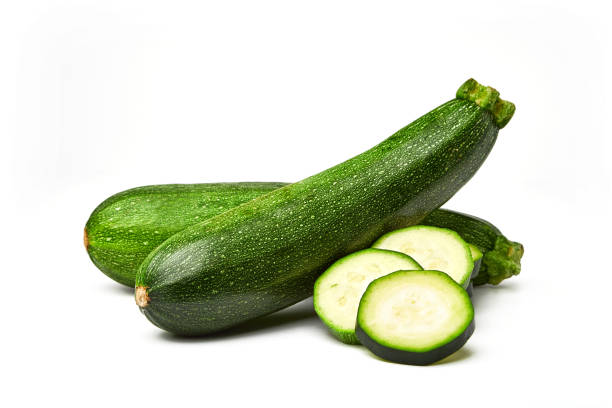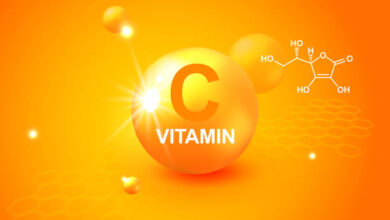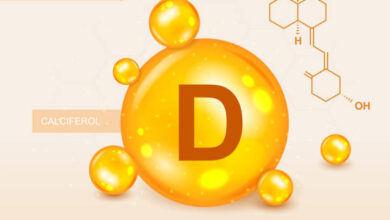Unveiling the Green Wonder: 10 Health Benefits of Zucchini
Unveiling the Green Wonder: 10 Health Benefits of Zucchini

Zucchini, often regarded as a humble vegetable, packs a punch when it comes to nutritional value and health benefits. This versatile summer squash, also known as courgette, is not only low in calories but also a powerhouse of essential nutrients. From aiding digestion to promoting heart health, let’s delve into the myriad health benefits of incorporating zucchini into your diet.

Rich Source of Nutrients:
zucchini stands out as a rich source of essential nutrients, offering a bounty of vitamins and minerals vital for overall health and well-being. Packed with vitamin C, it bolsters the immune system, aiding in the body’s defense against infections and illnesses. Moreover, its high vitamin A content promotes optimal vision health and supports proper immune function. Alongside vitamins, zucchini nutrition boasts an array of minerals such as potassium, manganese, and magnesium, which are indispensable for maintaining healthy bodily functions. Potassium, in particular, plays a crucial role in regulating blood pressure and supporting heart health. Additionally, zucchini provides dietary fiber, aiding digestion, promoting satiety, and contributing to weight management. With its impressive nutritional profile, zucchini emerges as a versatile vegetable that not only delights the taste buds but also nourishes the body from within.

Low in Calories, High in Fiber
Zucchini’s remarkable nutritional profile extends to its calorie and fiber content, making it a standout option for those focused on maintaining a healthy weight and optimizing digestive health. With its low-calorie count, zucchini offers a guilt-free addition to meals, allowing individuals to indulge in satisfying portions without worrying about excessive caloric intake. Furthermore, its high fiber content makes zucchini an excellent choice for promoting digestive regularity and satiety. Fiber adds bulk to stool, facilitating smoother bowel movements and alleviating constipation. Moreover, it slows down digestion, which helps to regulate blood sugar levels and prevent sudden spikes in energy followed by crashes. Incorporating zucchini into meals not only enhances their nutritional value but also promotes a sense of fullness, making it easier to control overall calorie consumption. Whether grilled, sautéed, or spiralized into noodles, zucchini serves as a versatile, low-calorie, high-fiber option that supports both weight management and digestive wellness.
Supports Digestive Health:
Zucchini’s contribution to digestive health is significant, owing to its rich fiber content and other beneficial nutrients. Zucchini, being abundant in dietary fiber, aids in adding bulk to stool, facilitating its smooth passage through the intestines. This not only promotes regularity but also prevents discomfort associated with constipation.
Moreover, zucchini acts as a prebiotic, nourishing the beneficial bacteria residing in the gut. These probiotics play a pivotal role in maintaining gut health by promoting a balanced microbiome, which in turn supports optimal digestion and absorption of nutrients. By fostering a healthy gut environment, zucchini contributes to overall digestive wellness and may help alleviate symptoms associated with digestive disorders such as irritable bowel syndrome (IBS).
Additionally, zucchini’s high water content assists in hydration, which is essential for maintaining soft stools and preventing dehydration, a common culprit behind constipation. Its gentle, soothing properties make it suitable for individuals with sensitive digestive systems, providing relief from digestive discomfort.
Incorporating zucchini into your diet in various forms, such as raw in salads, grilled, sautéed, or blended into soups, ensures that you reap the digestive benefits while enjoying its delicious flavor and versatility. By making zucchini a regular part of your meals, you can support digestive health and enhance overall well-being.
Heart-Healthy Benefits:
Zucchini offers a multitude of heart-healthy benefits, making it a valuable addition to any balanced diet aimed at promoting cardiovascular wellness. One of its key attributes is its high potassium content. Potassium plays a vital role in regulating blood pressure levels by counteracting the effects of sodium in the body. By promoting vasodilation and reducing tension in the blood vessel walls, potassium helps to lower blood pressure and minimize strain on the cardiovascular system. This, in turn, lowers the risk of hypertension, stroke, and other cardiovascular diseases.
Furthermore, zucchini is rich in dietary fiber, which has been linked to improved heart health. Fiber helps to lower cholesterol levels by binding to cholesterol particles in the digestive tract and facilitating their excretion from the body. By reducing levels of LDL cholesterol (often referred to as “bad” cholesterol) and promoting the balance of HDL cholesterol (“good” cholesterol).
Moreover, the antioxidants present in zucchini, such as vitamin C and beta-carotene, help to combat oxidative stress and inflammation, both of which are implicated in the development of cardiovascular diseases. By neutralizing free radicals and reducing inflammation in the blood vessels, these antioxidants help to protect against endothelial damage and improve overall vascular health.
Antioxidant Powerhouse:
Zucchini emerges as an unexpected yet potent antioxidant powerhouse, boasting an array of compounds that combat oxidative stress and bolster overall health. At the forefront of its antioxidant arsenal are vitamins C and A, both renowned for their ability to neutralize harmful free radicals and protect cells from damage. Vitamin C, in particular, serves as a formidable shield against oxidative stress, bolstering the immune system and promoting skin health.
Moreover, zucchini is rich in phytonutrients such as lutein and zeaxanthin, carotenoids that exert powerful antioxidant effects. These compounds have been extensively studied for their role in safeguarding eye health, particularly against age-related macular degeneration and cataracts. By filtering out harmful blue light and quenching reactive oxygen species, lutein and zeaxanthin help to preserve vision and maintain ocular integrity.
Additionally, zucchini contains other antioxidant compounds like flavonoids and polyphenols, which contribute to its robust free radical scavenging activity. These plant-based antioxidants possess anti-inflammatory properties and have been associated with a reduced risk of chronic diseases such as cancer, cardiovascular disorders, and neurodegenerative conditions.

Supports Eye Health:
Zucchini emerges as a champion for eye health, thanks to its wealth of essential nutrients and antioxidant compounds that specifically target ocular wellness. At the forefront of its eye-supporting arsenal are lutein and zeaxanthin, two powerful carotenoids known for their ability to protect against age-related macular degeneration (AMD) and cataracts. These compounds accumulate in the retina, where they act as natural filters, absorbing harmful blue light and shielding delicate retinal cells from oxidative damage.
Moreover, zucchini is rich in vitamin C, a potent antioxidant that plays a crucial role in maintaining the health of ocular tissues. Vitamin C promotes the synthesis of collagen, a structural protein essential for the integrity of the cornea and other eye structures. By bolstering collagen production, vitamin C helps to prevent conditions such as keratoconus and supports overall visual acuity.
Furthermore, the vitamin A content in zucchini is instrumental in preserving night vision and promoting optimal functioning of the retina. Vitamin A is a precursor to rhodopsin, a light-sensitive pigment found in the retina’s photoreceptor cells. Adequate intake of vitamin A ensures the efficient production of rhodopsin, facilitating the process of light detection and enhancing low-light vision.
Hydration and Electrolyte Balance:
Zucchini, with its high water content and abundance of essential electrolytes, plays a vital role in maintaining hydration and electrolyte balance within the body. Composed of over 90% water, zucchini stands out as a hydrating vegetable, making it an excellent choice for promoting proper fluid intake and preventing dehydration.
Furthermore, zucchini contains key electrolytes such as potassium, magnesium, and calcium, which are essential for various physiological functions. Potassium, in particular, plays a crucial role in regulating fluid balance, muscle contractions, and nerve impulses. By facilitating the movement of fluids and nutrients into cells, potassium helps to maintain proper hydration levels and prevent dehydration-related complications.
Moreover, magnesium, another electrolyte abundant in zucchini, supports hydration by regulating water retention and electrolyte balance. Magnesium works in tandem with potassium to ensure optimal muscle function and nerve transmission, further contributing to overall hydration status.
Calcium, although present in smaller amounts in zucchini, also plays a role in electrolyte balance by supporting muscle contractions and nerve signaling. Together with potassium and magnesium, calcium helps to maintain the integrity of cell membranes and facilitates the movement of fluids and electrolytes throughout the body.
Anti-Inflammatory Properties:
Zucchini boasts notable anti-inflammatory properties, making it a valuable addition to a diet aimed at reducing inflammation and promoting overall health. Chronic inflammation has been linked to a myriad of health issues, including arthritis, heart disease, and autoimmune disorders. Fortunately, incorporating zucchini into your meals can help mitigate inflammation and its associated risks.
One of the key contributors to zucchini’s anti-inflammatory prowess is its rich array of antioxidants, including vitamin C, vitamin A, and phytonutrients such as flavonoids and polyphenols. These antioxidants work synergistically to combat oxidative stress and neutralize harmful free radicals in the body. By reducing oxidative damage to cells and tissues, zucchini helps to quell inflammation at its source, thereby lowering the risk of chronic inflammatory conditions.
Additionally, zucchini is rich in antioxidants, including vitamin A and carotenoids such as lutein and zeaxanthin. These antioxidants help to neutralize free radicals generated by environmental stressors like UV radiation and pollution, which can cause oxidative damage to skin cells and accelerate aging. By scavenging free radicals and protecting against oxidative stress, zucchini supports the skin’s natural defense mechanisms, helping to maintain its health and vitality.
zucchini in air fryer

Versatile and Delicious:
zucchini meals
Last but not least, zucchini’s versatility in the kitchen makes it easy to incorporate into a wide range of dishes. Whether sliced, grated, roasted, zucchini bread, or spiralized, zucchini adds texture, flavor, zucchini bread recipe, and nutrition to salads, soups, stir-fries, and even baked goods. Its mild taste makes it an excellent vehicle for various seasonings and sauces, allowing for endless culinary creativity.
Conclusion:
From its nutrient density to its culinary adaptability, zucchini deserves its place as a staple in a healthy diet. Whether you’re aiming to improve digestion, support heart health, or simply enjoy delicious meals. Incorporating zucchini into your meals offers a multitude of health benefits. So, next time you’re at the market, don’t overlook this green wonder – your body will thank you for it.





